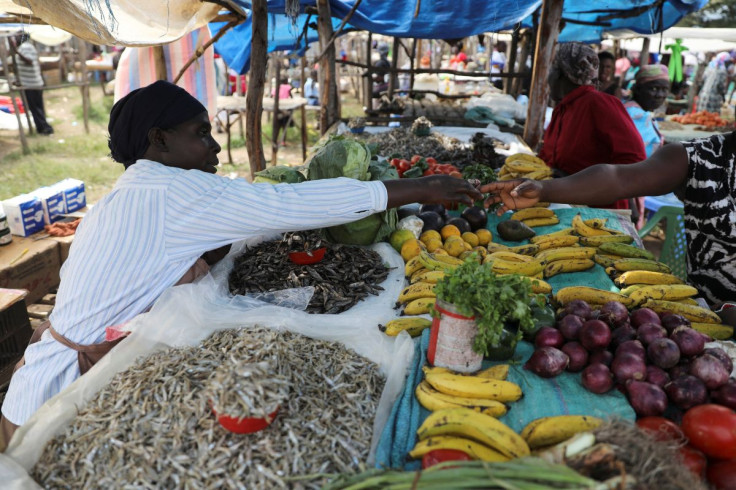In Kenya's Sugar Country, Volunteers Keep Election Relations Sweet

The khaki-coloured road slicing through Kibigori town in Kenya's sugar-growing country is more than a county boundary, it is also a faultline dividing communities fielding rival presidential candidates in the Aug. 9 election.
The town's split loyalties and history of unrest make it a potential flashpoint where armed police are conducting daily patrols. But it is also a test case for home-grown community peace-building in a country wary of the violence that followed the disputed 2007 and 2017 elections.
In 2017, tit-for-tat violence erupted in the town between two of the nation's largest ethnic groups - the Luo and the Kalenjin. Houses were torched, cattle stolen and six people killed.
This time, religious leaders and volunteer peace ambassadors from both sides are trying to stop problems before they start. The peace ambassadors are part of a nationwide initiative - the Peace Ambassadors Integration Organisation.
On the southern side of the town, residents from the Luo community largely back their ethnic kinsman and veteran opposition presidential hopeful Raila Odinga. Their neighbours to the north overwhelmingly support Deputy President William Ruto, a fellow ethnic Kalenjin.
No politician is worth a life, the peace ambassadors say.
"Every five years politicians come and make more promises... but when you elect them they disappear," said Willis Oundo, who has volunteered as a peace ambassador with the Luo community for 14 years.
Local politicians from both sides promise to move the county boundary north or south, he said, giving their supporters a larger share of fertile lands rich with sugar cane and grazing grounds.
Oundo tells voters to ignore politics and focus on shared interest: the sugar plantations and factories where residents work side by side.
"When we fight, the economy collapses," he said.
Prisca Rono, one of Oundo's counterparts from the Kalenjin community, says the same.
"If we don't have peace, industry will close. No peace, no work," she said.
Some residents are still worried. Shopkeepers from both sides plan to close their business two days before the vote.
At the Grace Gospel Ministry, a corrugated iron church on the southern side of town, pastor Moses Agolla said Kalenjin parishioners stopped coming as political tensions rose three months ago. Agolla was injured in 2017 when a mob attacked him and torched his house.
Several weeks ago, in a nearby town, leaflets were distributed ordering people to vote for Ruto or leave town. On Tuesday, police arrested eight people in a different area for distributing incendiary leaflets in the Rift Valley.
VOTE FOR PEACE
To help improve ties, Agolla has sent parishioners door-to-door to preach peace, and held meetings with likeminded pastors from across the street.
"My message is to vote for peace," Agolla said.
Rono and Oundo agree there's far less hate-speech or threats to seize land than before the 2017 election. Cattle-rustling, often a spark for revenge, has reduced.
Nationally, pre-election violence such as hate leaflets, civil unrest, intimidation, attacks on candidates, has fallen by more than two-thirds between January and end of July compared with the same period in the run-up to the 2017 polls, said Declan Galvin of risk advisory company WS Insight.
The peace ambassadors also liaise between citizens and security forces, who are frequently accused by rights groups of using excessive force to quell protests.
"This election is a bit volatile," Oundo said. "You never know what will happen ... we'll keep on talking."
© Copyright Thomson Reuters 2024. All rights reserved.











